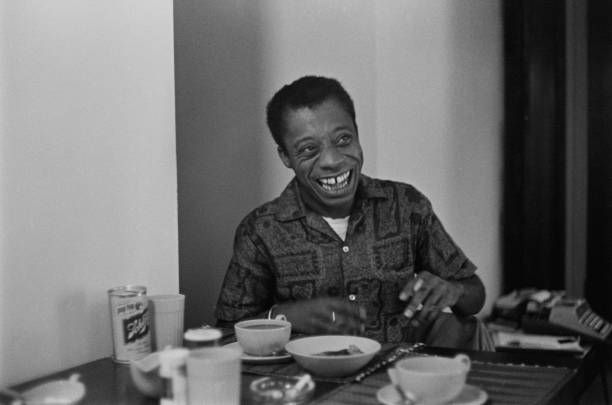James Baldwin (1924–1987) was an acclaimed author and advocate for civil rights, renowned for his semi-autobiographical literary works and theatrical productions that delve into the themes of race, politics, and sexuality.
James Baldwin – Early Life and Education

James Baldwin, born in 1924, was raised in Harlem, New York by his mother and stepfather, David Baldwin, who was a Baptist preacher from New Orleans, Louisiana. During his formative years, Baldwin attended Frederick Douglass Junior High School, where he had the opportunity to meet Countee Cullen, a renowned poet of the Harlem Renaissance, who also served as his French teacher and mentor.
Baldwin later enrolled at DeWitt Clinton High School, where he actively engaged in editing the school newspaper, Magpie, and was an active member of the literary club.
Distancing himself from segregated society in America
In 1948, Baldwin embarked on a journey to Europe due to the stifling creative environment caused by racial discrimination in America. This decision proved to be pivotal as he went on to create literary masterpieces that garnered immense acclaim within the American literature canon.

Residing in Paris allowed Baldwin to distance himself from the segregated society in America, enabling him to delve deeper into his experiences and effectively portray the prevailing culture of his homeland. Additionally, Baldwin actively participated in the Civil Rights Movement, forging close friendships with influential figures such as Medgar Evers, Reverend Martin Luther King Jr., Malcolm X, Maya Angelou, Nina Simone, and Lorraine Hansberry.
The untimely deaths of many of these friends profoundly impacted Baldwin, shaping the themes and narratives of his novels and plays, particularly in relation to race relations in America.
Role in Raising Public Consciousness
Baldwin’s literary contributions played a crucial role in raising public consciousness regarding racial and sexual oppression. By honestly depicting his personal experiences within a broader national context, he challenged America to live up to its professed ideals of equality and justice.

Baldwin delved into these themes in various notable works, including Go Tell It on the Mountain, Notes of a Native Son, The Fire Next Time, Giovanni’s Room, If Beale Street Could Talk, and Another Country. Notably, Baldwin advocated for the fluidity of sexuality, rejecting rigid categorizations that were not widely accepted until recent times.
Through his widespread popularity and influential writings both domestically and internationally, Baldwin emerged as a catalyst for change within American society’s artistic and intellectual traditions.
Baldwin’s vocal observations on race relations in American culture were not limited to his writing alone. He delved into other creative outlets, such as poetry and screenplays, to further express his views. His contributions extended beyond his own works, as he played a significant role in the creation of the Autobiography of Malcolm X, a seminal piece of literature that later served as inspiration for Spike Lee’s film, Malcolm X.
In addition to his literary endeavors, Baldwin dedicated a substantial portion of his life to teaching. He shared his knowledge and insights with students at the University of Massachusetts at Amherst and Hampshire College, leaving a lasting impact on the minds of aspiring writers and intellectuals.
Tragically, Baldwin’s life was cut short by stomach cancer. He departed at his St. residence. Paul de Vence, France, on December 1, 1987, at the age of 63. His death was a great loss to the literary and intellectual world, as he had been a powerful voice for social justice and equality.
Despite his untimely demise, Baldwin’s legacy lives on through his works. One of his notable manuscripts, Remember This House, remains unfinished but has garnered significant attention. This manuscript became the focal point of the critically acclaimed 2016 film by Raoul Peck titled I Am Not Your Negro. The film, which explores Baldwin’s reflections on the lives and deaths of civil rights leaders Medgar Evers, Malcolm X, and Martin Luther King Jr., serves as a testament to Baldwin’s enduring influence and relevance in contemporary society.
